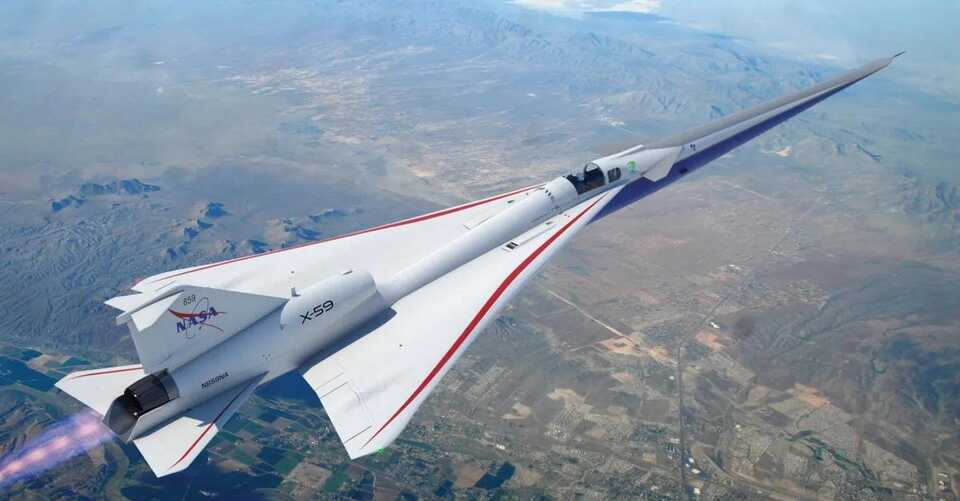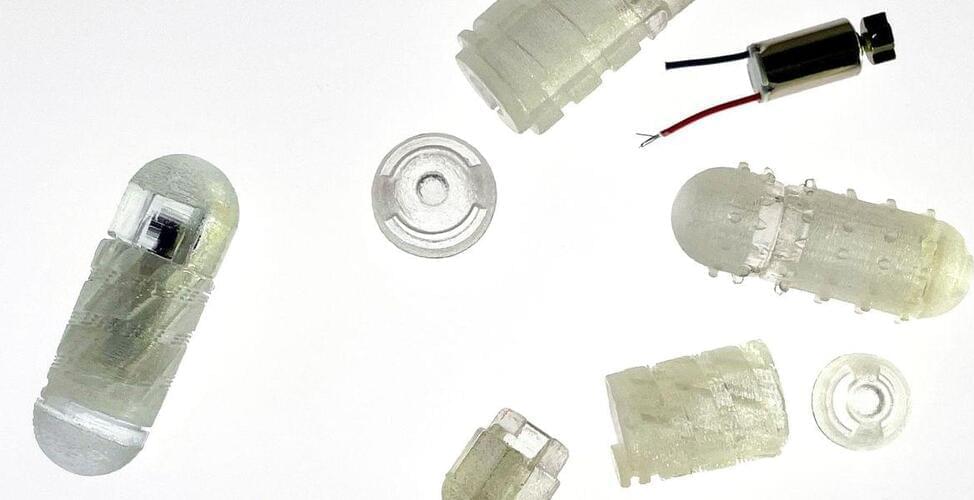With the help of NASA’s QueSST mission, aeronautical innovators hope to break the sound barrier once more, but this time in a totally different fashion that…



Thanks to a $19.2 million collaboration co-funded by the European Union.
Irish firm Ocean Energy has signed up to a collaboration project with 14 industry and university partners in the UK, Ireland, France, Germany, and Spain. The project will test its OE35 floating wave energy device at scale over the next four years.
The new €19.6 million ($19.
Source: Ocean Energy / YouTube.
Ocean Energy develops wave energy technology to harness the power of the ocean for renewable energy in a bid to improve the security of energy supplies and also to help ease the energy transition.
The dancing robots performed in a video that was in conjunction with a concert held by BTS in Busan, South Korea.
Boston Dynamics robot dog, Spot, is dancing, once more. This time, it’s to the hit song “Permission to Dance” by group BTS, a popular band from South Korea, in a new video (featured below).
Boston Dynamics’ robot Spot dancing.

The crystals are significantly larger than any that have ever been created previously.
A hitherto unknown characteristic of colloidal crystals, highly organized three-dimensional arrays of nanoparticles, has been discovered by Northwestern University researchers very recently.
According to Northwestern University’s release, similar to the natural structures found in chameleon skin and butterfly wings, DNA-engineered colloidal crystals demonstrate shape-shifting and structural memory.

It’s more affordable and effective.
City College of New York’s new AI model will be able to predict accurately human response to novel drug compounds. Moreover, it is less costly and faster. Published in Nature Mature Intelligence.
According to research, the new CODE-AE model can screen brand-new medication molecules and reliably forecast their effectiveness in people. In tests, it was also able to find potentially more effective tailored medications for over 9,000 patients.
Luckystep/iStock.
Published in Nature Mature Intelligence on October 17, this technique might significantly speed up precision medicine and medication development.


Will other billionaires follow suit?
Over the summer, Frenchman Bernard Arnault, the co-founder of luxury goods company, Louis Vuitton, was under fire on Twitter for the excessive use of his private jet. His solution to escape the criticism was to sell his private jet and rent one instead when needed, Bloomberg.
Billionaires like Arnault have used private jets in the past as well, but without being noticed by the public at large. However, with the use of automation, their information can not only be pulled up but also publicly shared over social media channels like Twitter.

Sleek, light, high-performance, and not easy on the pocket like any other Apple device.
Earlier this week, Meta rolled out its Quest Pro Virtual Reality (VR) headset, priced at $1,499. Many questioned the need for a high-end VR headset when the company’s Quest 2 headset appears to be doing rather well. However, as Mark Zuckerberg mentioned in his conversation with The Verge.
The official launch of Apple’s mixed reality headset was expected to happen in 2022. In the recent past, we have had Apple products being announced much earlier than their actual availability, so a 2022 launch could still be possible. To prepare you for such an event, here’s what you need to know about the Apple headset.
What is mixed reality?
Before we delve into the details of the device, here is a short explainer of why the Apple device is not a regular VR headset. The purpose of VR is to deliver a completely immersive experience. To do so, headsets cut the user’s focus off their surroundings by dimming the peripheral vision and providing audio, visual, and often tactile feedback to make the experience more relatable.

Anosmia, or the inability to smell, can be caused not only by head injuries but also by exposure to certain toxins and by a variety of medical problems—including tumors, Alzheimer’s, and viral diseases, such as COVID. The sense of smell also commonly atrophies with age; in a 2012 study in which more than 1,200 adults were given olfactory exams, 39 percent of participants age 80 and above had olfactory dysfunction.
The loss of smell and taste have been dominant symptoms of COVID since the beginning of the pandemic. People with COVID-induced anosmia currently have only three options: Wait and see if the sense comes back on its own, ask for a steroid medication that reduces inflammation and may speed recovery, or begin smell rehab, in which they expose themselves to a few familiar scents each day to encourage the restoration of the nose-brain nerves. Patients typically do best if they seek out medication and rehab within a few weeks of experiencing symptoms, before scar tissue builds up. But even then, these interventions don’t work for everyone.
In April 2020, researchers at VCU’s smell and taste clinic launched a nationwide survey of adults who had been diagnosed with COVID to determine the prevalence and duration of smell-related symptoms. They’ve followed up with those people at regular intervals, and this past August they published results from people who were two years past their initial diagnosis. The findings were striking: Thirty-eight percent reported a full recovery of smell and taste, 54 percent reported a partial recovery, and 7.5 percent reported no recovery at all. “It’s a serious quality of life issue,” says Evan Reiter, director of the VCU clinic.